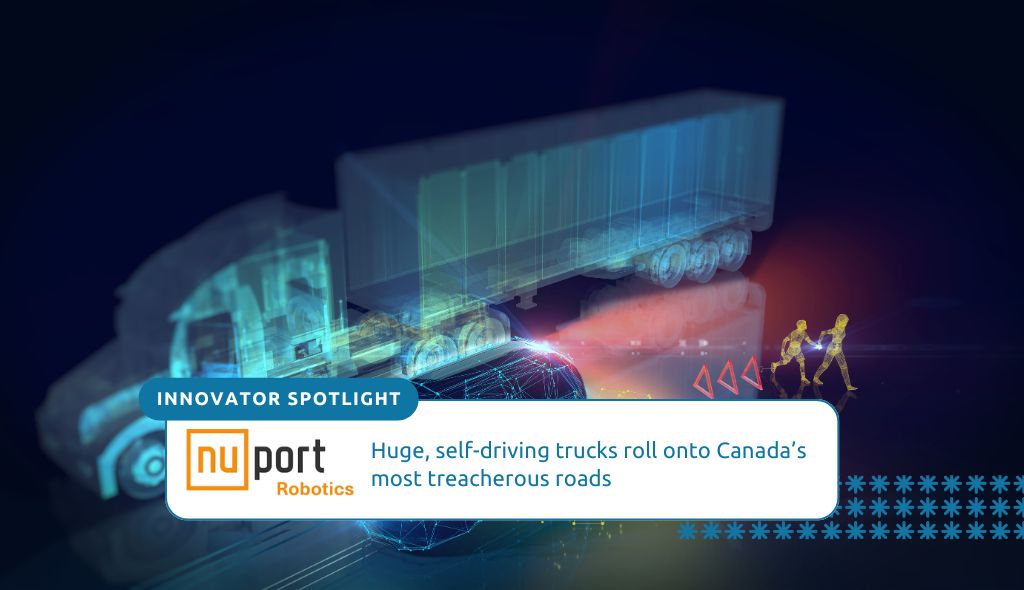Home » Massive Self-Driving Trucks Enter Canada’s Most Challenging Roads
Massive Self-Driving Trucks Enter Canada’s Most Challenging Roads

In the remote Canadian wilderness, autonomous trucks developed by NuPort Robotics are being tested on treacherous roads, including one-lane bridges, as part of an initiative to address challenges affecting Canada’s timber transport industry. The ongoing recruitment difficulties, exacerbated by the effects of the climate crisis and trade wars, place added pressure on traditional wood-product companies. David Elstone, a professional forester, notes that Canada’s vast and rugged terrain results in higher transport costs compared to the centralized mills of the U.S. South.
The struggle for talent is palpable; a survey indicated that Alberta’s trucking and forestry sectors were unable to fill 305 driver positions in 2022, leading to a significant revenue decline. Industry insiders express skepticism about whether AI systems, which are being successfully deployed in urban areas for taxi services, are equipped for navigating Canada’s challenging logging roads characterized by steep terrain and unpredictable conditions.
NuPort Robotics is currently collaborating with notable companies within the forestry sector to automate trucking operations. They aim to enhance efficiencies in logistical operations and alleviate driver fatigue. While the technology is promising, challenges remain, such as developing solutions for unexpected obstacles like falling logs. This project is a continuation of research by various firms and organizations, including FPInnovations, focused on advancing automation within the logging industry.
As Canada remains a major player in global wood product trade, the stakes have never been higher for the timely transport of timber from forests to markets. The landscape has been further complicated by historic wildfires and ongoing trade disputes, leading to intermittent sawmill closures and supply chain disruptions. Automation is viewed as a potential remedy, with companies like West Fraser testing autonomous forklifts, and innovations like remote-operated log yarders emerging.
Despite the potential benefits, there’s a notable pushback from labor unions wary of job losses. The Public and Private Workers of Canada (PPWC) has raised concerns while acknowledging the safety enhancements automation might introduce. Workers appreciate their roles, which can start as early as 1:30 AM, and a University of Washington study indicated that qualified drivers excel even in challenging weather conditions.
The project is well-received in initial discussions with workers, yet the conversation is fraught with tension between labor shortages and automation efforts. Gord Magill, a seasoned trucker, argues that the reality of trucking transcends merely driving and worries about safety being compromised as attention shifts away from the road due to technology.
The complexities of logging operations—often unmarked routes and the necessity of physically managing loads—add an additional layer of scrutiny to these automated efforts. Critics like Magill express skepticism toward innovative approaches such as truck platooning, arguing that traditional methods have served the industry well for decades and questioning the necessity of high-tech solutions.
In conclusion, while automation holds promise for improving efficiency in the forestry sector, significant barriers and social ramifications need careful consideration as industry stakeholders navigate the uncertain future of work and technology in this critical economic area.
Innovation Factory
Innovation Factory is a business accelerator, dedicated to helping Ontario-based businesses launch, scale, and succeed. Supporting the Brant, Halton, Hamilton and Norfolk regions, we provide start-ups, and scaling companies with advisory services, training, mentorship, and strategic connections to help bring disruptive technologies to market, leverage intellectual property, increase revenues, attract investment and create jobs. Innovation can happen anywhere, our goal is to make it work everywhere. We work to elevate key industry sectors including advanced manufacturing, clean tech, information technology, smart transportation, life sciences & health care and social innovations. We are passionate about driving the growth of Ontario businesses like yours. Whether you are an entrepreneur bringing new ideas to market or a scaling business trying to get to the next level, we want to help.

